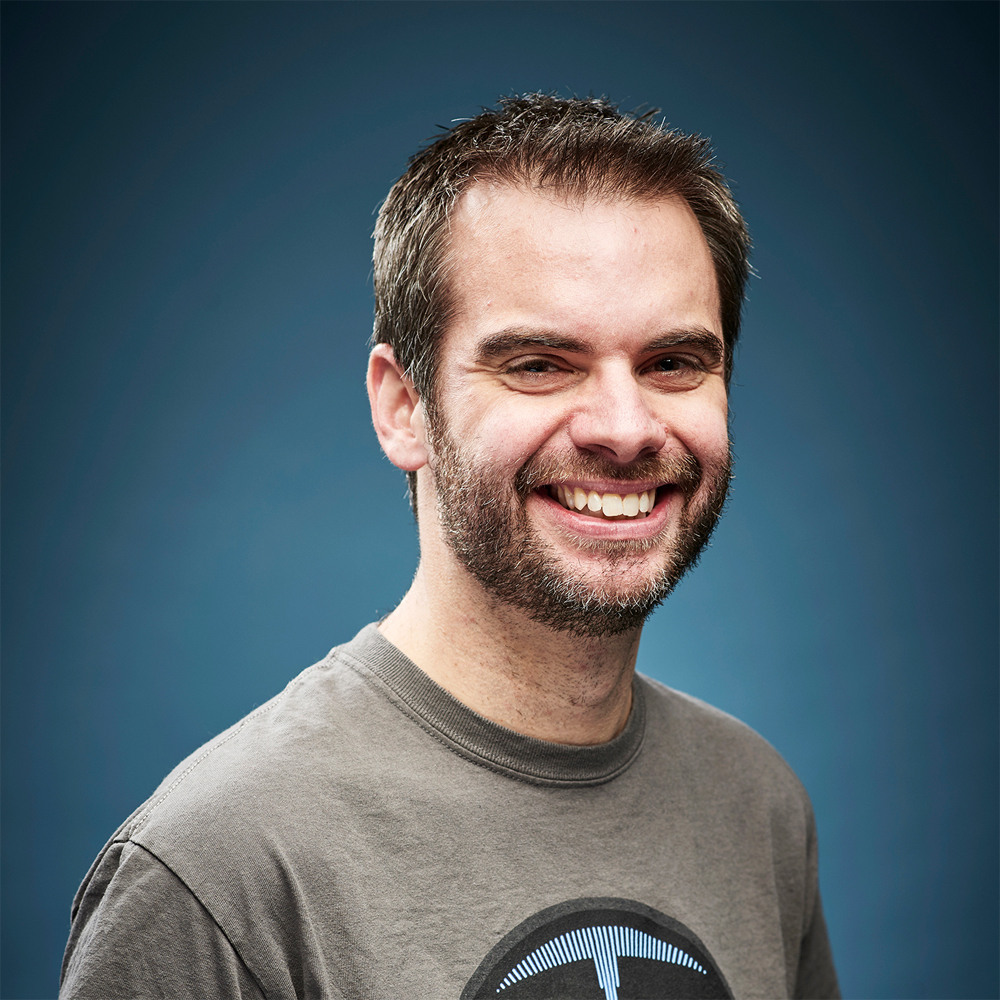Hanna season 2 brings spy drama thrills to Amazon Prime Video this weekend
We spoke to Hanna creator David Farr about the show's return
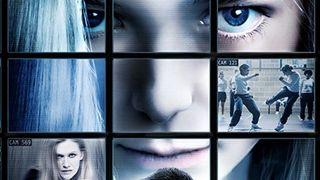
Some spoilers for Hanna season 1 follow.
Our first sighting of Hanna was on the big screen. This genetically enhanced teen assassin – living off the grid with the man she believed to be her father – was the central character in Atonement director Joe Wright’s 2011 spy thriller. But the movie’s co-screenwriter, David Farr, always felt there was plenty more story to tell – enough to carry Hanna’s TV incarnation into its upcoming second season.
“I always had in my head that I wanted to tell the story of where Hanna really came from,” David Farr, creator and showrunner of the Amazon Prime show, tells us. “[I wanted to look at] the fact there were these other young girls who hadn’t been rescued, that had been left behind. They were being trained in this facility to go and do assassinations. The film didn’t have enough time to get there, but they left this huge opportunity where you could retell the story and go way further with the character.”
An audacious mission to save other teen super-soldiers created by the sinister Utrax programme changed everything for Hanna (Esme Creed-Miles) in the Hanna season 1 finale. Erik Heller (Altered Carbon’s Joel Kinnaman), the former CIA operative who saved Hanna from the US government and raised her as his own daughter, died from his injuries in the skirmish. That left Hanna and new ally Clara (aka recruit 249, played by Yasmin Monet Prince) on the run and alone in the wilderness.
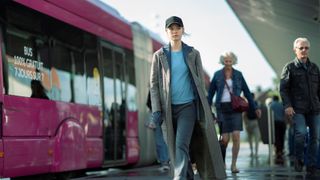
- The best Amazon Prime shows
- The Boys season 2: what we know
- The best shows of 2020 so far
“With Erik gone, Hanna has a very interesting choice,” says Farr. “Does she hide away in the forest? She tries it but it didn’t work when Erik tried it with her, and it doesn’t work now with Clara. Or does she think about re-engaging with that Utrax world where – in a way – she should always have been. Does she just give up and go, ‘Okay, I am part of this, it’s the only family I’ll ever have’? That’s the central dilemma of season 2 and that’s the bit I knew I wanted to explore.”
It’s not a major spoiler to say Hanna does meet up with her “sisters” from the Utrax programme over the course of the eight-episode season 2. The teen recruits are now being trained at a top-secret facility known as The Meadows, developing the new identities they can use when sent into action in the outside world.
“I love conspiracy thrillers and the sense that there’s this unknown organization where you don’t quite know who’s in charge,” Farr explains. “They have this plan, which is terrifying – to create these young women who appear to be completely harmless, American college students who can go anywhere in the world. No one will bat an eyelid, but they can do the state’s bidding. That’s what Hanna could buy into. I love that idea – it’s slightly sci-fi, but it’s also weirdly, terrifyingly believable in our crazy world. Also, it puts our lead character Hanna into such a dilemma, because if she doesn’t do that, she’s completely alone.”
Get daily insight, inspiration and deals in your inbox
Get the hottest deals available in your inbox plus news, reviews, opinion, analysis and more from the TechRadar team.
For Hanna, who’s spent most of her life away from civilization – and is significantly more comfortable surviving in the wilderness than interacting with people – fitting in with the other trainees is going to mean a radical shift in lifestyle.
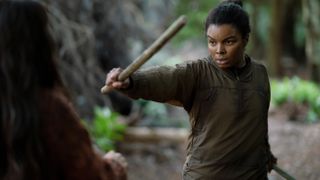
“I wanted to put Hanna more face-to-face with the organisation that had created her, and ask her the question: “What do you want to be?’” Farr reveals. “Do you want to be part of that or do you want to fight it? Erik’s brought her up in a very specific way, but she now has to think for herself. This series, more than any other that I’ve worked on, tries to kind of marry two very distinct things. One is a rather intimate coming of age drama about a young girl learning who she is and discovering what to do with her life. But it’s also a high-octane, high-concept conspiracy thriller with loads of action.”
Having written for both Spooks (MI-5 in the US) and brilliant John Le Carré adaptation The Night Manager, Farr knows a thing or two about crafting tense, espionage-tinged thrillers. But so often, as with the James Bond and Jason Bourne movies, spy drama is dominated by men – and the key players are usually old enough to vote. Hanna turns everything on its head, however – not only with all its teenaged, female protagonists, but by making them genetically enhanced and theoretically equal.
“It’s like their superpower,” says Farr. “I really wanted to do Hanna because I have two daughters and the spectrum of possibility for female characters they were watching was so small compared to men. Men could do all sorts of things, and it kind of made me sad. I felt it wasn’t good, to put it bluntly, but it feels like Hanna can be part of a stretching of those boundaries. It’s also incredibly creative because I think the gap between what they seem like on the surface and what they can actually do –they’re so innocent in so many ways, but they can do terrifying things – is what makes it so enjoyable.”
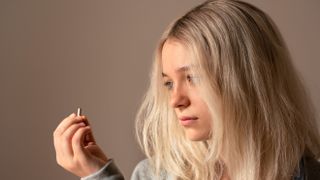
Although Hanna already a frighteningly skilled killing machine, she still has plenty to learn about the spy trade when she ends up at The Meadows.
“Esme is politically very thoughtful, so I wanted to try and allow Hanna a little bit more of that agency, to really wrestle with ideas a bit more,” Farr explains. “I think that doesn’t happen initially in the series, but as it goes on I think you see that more and more in the character – she becomes more of an agent in her own decision making.
"That ends up with Hanna being really quite front-foot, which I know Esme enjoyed. In the first season she was very much an animal learning a completely new environment, everything was just hitting her from all sides. That was really enjoyable – she was almost like an alien coming into the [human] world – but now we’re in a different stage and it’s an important development in her story.”
With Erik, Hanna’s father figure, now gone there’s a big hole in her life. But with Marissa Wiegler (Mireille Enos), the CIA agent who spent much of season 1 on Hanna’s tail, taking a special interest in the girl, could Hanna be looking to make her a surrogate mother?
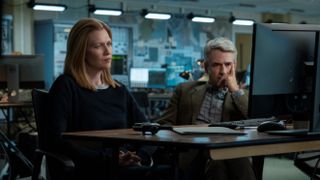
“I’m not sure Hanna’s looking for it but Marissa’s definitely looking for her!” explains Farr. “I think there is unquestionably a mother/daughter thing going on, and it’s actually quite an interesting [dynamic]. It reminds me of a mum and a teenage daughter where the daughter’s a bit unsure, a bit untrusting, and testing the relationship. But fundamentally I think Marissa is growing to really care for this young girl and to really want to protect her. I think we see that as the season develops. Mireille’s a brilliant actor, and she can really convey all sorts of different colours.”
There are also big changes back at the office for Marissa, who has a new boss in the form of new Utrax manager John Carmichael. Played by My Best Friend’s Wedding’s Dermot Mulroney, you can’t help feeling that Carmichael’s smooth façade is a front for something more sinister underneath.
“He’s not the mastermind of Utrax and I think that’s clear,” says Farr. “He’s the guy that’s been sent to run The Meadows, and I wanted him to be charming and very affable, weirdly. There’s so much I like about him. I like the fact he’s good looking. He’s very different to what you might expect, and he’s also not afraid to be quite normal. He’s not dressed glamorously. He’s kind of like a very charismatic middle-manager figure within the organization. He has power, of course, but he’s not got all the power. The real power lies on the end of the phone and he knows that, as do we.”
Perhaps the scariest thing about Hanna, however, is not who’s pulling the strings, but the fact that real-life governments have genuinely done experiments to create super-soldiers – sure, the likes Stranger Things, Captain America and Hanna push the boundaries of what’s possible, but there’s science fact at the heart of the science fiction. Some of that even fed into Hanna in the early days.
“A long time ago we did look at absolutely everything that was going on, whether it be in utero experiments or genetic experiments,” Farr explains. “I found some very interesting stuff at the time. But while that side of it still interests me – and I like the fact that [the recruits] are all extraordinary – I can’t pretend that I’m as obsessed with that as I am with the other stuff around it.
"Once you’ve created [the teen recruits], it’s about how they then engage with the world, how they engage with each other, how the organization wants them to behave and how they want to behave. In the end I’m a dramatist, I come from theatre, so I’m more interested in the people. I love the action and I love that it happens with these young women – I think it’s thrilling. But I certainly don’t think I have a Cronenbergian obsession with body horror. That’s not quite me!”
Hanna season 2 is available on Amazon Prime Video now
- Best streaming services compared
Richard is a freelance journalist specialising in movies and TV, primarily of the sci-fi and fantasy variety. An early encounter with a certain galaxy far, far away started a lifelong love affair with outer space, and these days Richard's happiest geeking out about Star Wars, Star Trek, Marvel and other long-running pop culture franchises. In a previous life he was editor of legendary sci-fi and fantasy magazine SFX, where he got to interview many of the biggest names in the business – though he'll always have a soft spot for Jeff Goldblum who (somewhat bizarrely) thought Richard's name was Winter.
Most Popular



